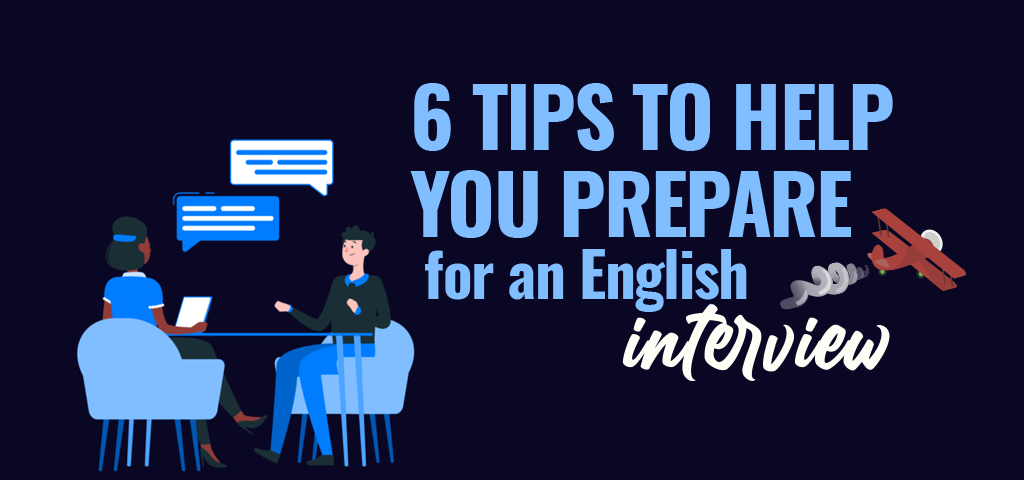6 tips to help you prepare for an English interview

If you have a job interview pending in English, we advise you on how to be successful in it. Have you ever applied for a job in a multinational company? Or simply the job you want requires a high level of English? In these cases, it is most likely that part of your interview (or the entire one) will take place in this language.
ÍNDICE DE CONTENIDOS
Naturally, if you are bilingual, surely this is not a problem for you,. However, if you belong to a large percentage of Spanish with a “medium-high English level”, we will help you to arrive more relaxed at your interview work in English with tips, tricks, and question-answer models.
Prepare your interview
The first step, whether it is an English or Spanish interview, is preparation. It is mandatory to know what we are dealing with. For example: In which sector is the company operating? What job position are they offering? What is the profile of the candidates you are asking for? Once you know how to answer these possible questions in your language, the best thing you can do is prepare a “vocabulary list” with the specific words of your position, profile, and work sector since they will surely be the ones used in the interview, it will always be better to prevent yourself from finding that you do not understand some of the words of the questions in your personal interview.
Search for specific vocabulary
When you think you are sure you know the specific vocabulary of your interview in English, it would be a good idea to start preparing the most common questions of a typical personal interview now, so that you know what each one means. Here we recommend a list of questions from the most common job interviews:
- Tell me about yourself
Cuéntame algo acerca de ti.
You can prepare this question with experiences related to the position you are applying for, avoiding not focusing on the personal terrain.
- What are your strengths?
¿Cuáles son tus puntos fuertes?
This possible question should be prepared with some ease for the personal interview, detailing your qualities accompanying it with some type of anecdote that exemplifies them, because probably the reply to your answer requires you in some way to mention an example.
- What is your weakness?
¿Cuál es tu mayor debilidad?
This is not a trick question, but one that requires some skill in the dialogue, therefore, respond with a quality that, although bad, seems positive. The classic and effective answer in job interviews is usually ” I’m a bit of a perfectionist”
- Why have you been unemployed for such a long time?
¿Por qué has estado desempleado tanto tiempo?
This question requires a lot of concentration on your part when answering, therefore you should try to fill in all the blanks, in such a way that you show confidence in yourself and give the impression of activity: count the courses you have done, the work you have done sporadically if you have a blog, bring it up …
- What do you know about the type of work we do?
¿Qué sabes acerca del tipo de trabajo que hacemos?
We come to a very interesting moment of the job interview so you should show off, narrate your experiences in similar positions, otherwise, you can talk about your specific training in that area, etc.
- Why do you think you would do well at this job?
¿Por qué piensas que podrías hacer bien este trabajo?
Again, it is the ideal time to bring out your qualities, experience, training, and everything that you think can give you more points when accessing the position. Keep in mind that the competition is increasing, so candidates have to thoroughly prepare for the interview to pass it satisfactorily.
Please, do not do that!
Of course, being late for the interview under no excuse. Punctuality is of vital importance for the employer and being late can be and in fact, it is, enough to run out of options in the job selection process.
Not adapting the profile to the required position
To be successful in the job interview, it is essential to know the company that is conducting the interview, the job it offers and the tasks that this job requires. Therefore, you must enhance the skills and aptitudes that are best adapted to the specific position for which you are opting. In this sense, it is not enough to present an interesting CV.
Not being prepared for conflicting questions
It is common in job interviews to repeat a series of questions that naturally the candidate must have prepared to give the appropriate answer. The normal thing is that they guide about academic training, professional experience or languages, but also about more personal aspects: the causes of interest in the position, the reasons why your relationship with your last company ended, salary and future expectations, etc.
In these cases, you have to face the answers with calm, security, sincerity, and a point of humility, but enhancing your own abilities.
Finally, avoid badmouthing your previous position, company, colleagues, or bosses
It is one of the most recurrent outings when the interviewee must explain the reasons why they did not continue in their last job.
You cannot use degrading language when referring to former colleagues, company, or boss. Reasons should be given, avoid disqualifications and excuses. Do not appear as a conflictive worker.
Always remember, hostile language is enemy number one of interview success.


